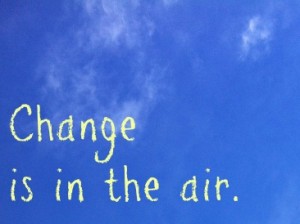“Nature is not an option, not a luxury. Nature is the underpinning that keeps us alive.
We have to do a better job at embracing it and caring for it.” – Sylvia Earle
<Excerpt from Organizational Survival: Profitable Strategies for a Sustainable Future>
 We have an unprecedented opportunity to reshape our world. We have accumulated more knowledge than ever before. The last hundred years have yielded astounding advances in engineering and technology. We have put men on the moon, put satellites in the sky, created worldwide communication networks, and explored the ocean to record depths. Through satellite photography, we can see the world in a way that none of our ancestors could. In the words of National Geographic explorer-in-residence Sylvia Earle, “Now we KNOW.”
We have an unprecedented opportunity to reshape our world. We have accumulated more knowledge than ever before. The last hundred years have yielded astounding advances in engineering and technology. We have put men on the moon, put satellites in the sky, created worldwide communication networks, and explored the ocean to record depths. Through satellite photography, we can see the world in a way that none of our ancestors could. In the words of National Geographic explorer-in-residence Sylvia Earle, “Now we KNOW.”
We are starting to understand our impact on Earth. With that knowledge, we can take action to change things for the better. We are at a crossroads—continue business as usual and deplete the Earth, or take action to preserve it. The good news is this: Now we KNOW—while we still have choices available. The crises affecting our planet require fundamental and innovative changes to every aspect of our lives. We need to change our mindset and create a bold new future. Business as usual will not get us there. We need innovations that focus on solving real problems without creating new ones. We’re not talking about incremental changes in products or services, though they do play a part. We need revolutionary innovations: sidewalks that power streetlights, buildings that eat smog, nuclear plants that run on radioactive waste.
….
People are responding. People are demanding environmental changes; in China where 700,000 people a year die because of air pollution, intense online social activism in 2012 finally prompted the government to monitor and communicate air quality data. Employees are demanding ethical changes in the way we work and do business; they want to work for socially responsible organizations. And consumers are demanding more sustainable products and practices, though there is still a mismatch between their demands and their buying practices.
Society’s paradigm is shifting, albeit slowly. After the Industrial Era, which focused on rebuilding countries and working hard to secure a comfortable living, and the Information Era, which digitalized our lives and enabled us to connect online, a large focus in the Social Era is on finding life balance and a genuine concern with the planetary changes taking place. Organizations are feeling increasing pressure from markets, consumers, employees, and governments to extend their focus beyond profits. There is new momentum toward acknowledging the long-term societal impacts of business, and developing strategies, visions, and values that consider all stakeholders.
….
Companies that are striving to be socially responsible exhibit common traits. They continue to surprise us with their innovation, creativity, and commitment to sustainability. One of the most significant characteristics of each of these companies is that none of them views sustainability as an option, or as a commitment separate from their day-to-day operations. It is never viewed as extraneous, but as an integral part of the organization.
The common traits these companies who took responsibility to transform their organizations to ensure a long-term sustainable future include:
- Adopting a long-term business view
- Focusing on results by actively reducing ecological risks and costs
- Taking responsibility for the complete value chain and supply chain
- Changing the organizational DNA – an integrated strategy and strategic decision process that embraces and embeds social, environmental, and ethical principles
- Demonstrating transparency and accountability for results
- Nurturing innovation
- Embracing synergetic collaborations
In order to become a successful, profitable and sustainable company with a solid reputation, sustainability must be woven into business strategy and day-to-day decision-making. Sustainability should be integrated in your company’s strategic plan, performance systems, and the way you do business. It should be a core business function. This takes true commitment and a lot of perseverance. It does not happen overnight.
